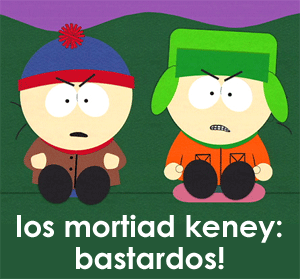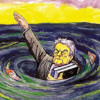 Home: Blog: 2012-08-24 Lingow
Home: Blog: 2012-08-24 Lingow
 A rose is a rose is a rose. The rose itself is what it is to Albanian, Basque, Indonesian, and Maltese people alike. But "rose" is not "trendafil", or "arrosa", or "bunga mawar", or "warda", and so the universal human experience of encountering that beauty cannot be expressed universally. Our shared experience creates a shared humanity, but our language does not allow us to share its expression.
A rose is a rose is a rose. The rose itself is what it is to Albanian, Basque, Indonesian, and Maltese people alike. But "rose" is not "trendafil", or "arrosa", or "bunga mawar", or "warda", and so the universal human experience of encountering that beauty cannot be expressed universally. Our shared experience creates a shared humanity, but our language does not allow us to share its expression.
Like the myth of nations, languages unite 'peoples' to divide people. Genesis 11:1-9 describes how God, frightened by the power humanity demonstrated to run their own lives, defeated that power not by flood or plague, but simply by dividing their languages. (I'm not being satirical here: it really says he was frightened of us. Read it.) As literal truth, this is of course as reliable as The Da Vinci Code, but as an observation of the power of language (and the sheer petty, insecure, vindictiveness of the God we are offered for worship) it is, as the Bible often is, uncannily acute.
A common language for humanity will not unite us, but we will not be united without it. Those those who assume it will be English should bear in mind that Spanish has now overtaken English in its number of native speakers, Chinese has always had more native speakers, and the main drivers behind the learning of English as a second language - the military and economic power of first the British and then the US empires - are long in decline. English's high-water mark never reached even 20% of humanity, and has already passed. Nor does English offer the simplicity or consistency required to make any system easy to learn or use: it is an imperial language not only in the sense that it was transmitted by empires, but also in the sense that it is not metric. Humanity need a metric language.
A rationally designed language, simple and consistent enough to allow us to communicate not only with each other but also with the artificial intelligences we have created around us, which spreads by voluntary, individual participation and not in the wake of force of arms, is our next step. Volapuk showed the way, Esperanto is a living language with more speakers than all but a tiny percentage of natural languages, Interlingua demonstrated that millions who think of themselves as speaking different languages can nevertheless all understand the same words without any instruction: but the language humanity ultimately adopts as a universal second language probably does not yet exist. Even when it does, it will continue to change even when most of us have learned it.
Whatever it is, it will not be lingow, in which "a rose is a rose is a rose" is written <roso rosa rosa>. lingow was merely the product of my own research into the subject. Don't, for Bob's sake, actually learn Lingow. But if you find puzzling it out entertaining, have fun, and consider learning Esperanto: not because Esperanto is necessarily the language of the future, but because it will allow you to speak to people all over the world who realise that whatever superficial differences we have been taught to overvalue, you and they share intelligent life, and can benefit from each other's thoughts and fellowship now.
But if you're curious about Lingow, click HERE.
Manny
 www.mannyneira.com
www.mannyneira.com






































